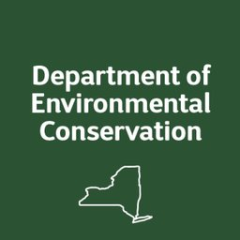Biologist 1 (Ecology)
Environmental Conservation, Department of

Duties Description
This position will be responsible for implementing the Article 24 (Freshwater Wetlands) and Article 15 (Protected Waters) programs in the northern portion of Region 9. Specific Article 24 duties will include performing wetland delineations, reviewing wetland permit applications, and responding to alleged wetland violations. Specific Article 15 duties will include performing site inspections of protected waters (certain lakes, rivers, and streams), reviewing protected waters permit applications, and responding to alleged violations. Additional duties will include reviewing Freshwater Wetlands and Protected Waters aspects of Article VII energy projects (major transmission lines).
Minimum Qualifications
This title is part of the New York Hiring for Emergency Limited Placement Statewide Program (NY HELPS). For the duration of the NY HELPS Program, this title may be filled via a non-competitive appointment, which means no examination is required but all candidates must meet the minimum qualifications of the title for which they apply. To be eligible for appointment under NY HELPS, candidates must meet the minimum qualifications below:
Non-Competitive qualifications:
A bachelor's or higher degree including or supplemented by with 18 semester credit hours in aquatic ecosystem restoration and enhancement, behavior of fish, behavior of wildlife, behavioral ecology, biology of fish, biology of wildlife, biostatistics, biomonitoring, conservation biology, conservation ecology, community ecology, community dynamics, ecological data analysis, ecological modeling and design, ecological risk assessment, ecology, ecology and management of invasive species, ecology of fish, ecology of freshwater or marine organisms, ecology of freshwater wetlands, ecology of wildlife, ecology of plants, ecology of habitats, ecosystems, ecotoxicology, environmental contamination, environmental toxicology, endangered species, entomology, environmental impact analysis, environmental impact assessment, forest ecology, fisheries management, habitat analysis, habitat geographic information system (GIS) analysis, habitat protection, habitat quality, habitat evaluation, habitat management, habitat restoration, herpetology, hydrogeomorphology, hydrobiology, hydrology, ichthyology, limnology, mammalian ecology, mammalogy, management of habitats, management of populations, marine ecology, mycorrhizal ecology, ornithology, plant ecology, population dynamics, population ecology, population management, population analysis, restoration and management, research in ecology, statistics in ecology, stream resource protection, systems ecology, urban wildlife, urban habitats, watershed-based conservation, watershed-based management, wetland resources, wetland restoration, wetland science, wetland and stream resources, or wildlife management.
Examples of Non-qualifying Courses: agriculture or domestic animal specialties, climate change, earth science, dendrology, environmental ethics, environmental planning, evolution, extinction, forest or forestry resources management, human population dynamics, human ecology, oceanography, silvicultural, taxonomy, water pollution control.
Competitive qualifications:
Reassignment - Currently in the title and an employee of DEC or Reinstatement Eligible - Previously held the title on a permanent competitive basis or held a title as indicated under the transfer eligible section on a permanent competitive basis. Transfer Eligible - One year of permanent competitive service at Salary Grade 11 or higher and either: Eligible for transfer under Section 70.4: Must meet the open competitive minimum qualifications listed below; or Eligible for transfer under Section 70.1: Permanent competitive service as a Fish and Wildlife Technician 2, Fish and Wildlife Technician 3, Biologist 1 Aquatic, Biologist 1 Ecology, Biologist 1 Marine or Biologist 1 Wildlife.
Open competitive minimum qualifications: A bachelor's or higher degree including or supplemented by with 18 semester credit hours in aquatic ecosystem restoration and enhancement, behavior of fish, behavior of wildlife, behavioral ecology, biology of fish, biology of wildlife, biostatistics, biomonitoring, conservation biology, conservation ecology, community ecology, community dynamics, ecological data analysis, ecological modeling and design, ecological risk assessment, ecology, ecology and management of invasive species, ecology of fish, ecology of freshwater or marine organisms, ecology of freshwater wetlands, ecology of wildlife, ecology of plants, ecology of habitats, ecosystems, ecotoxicology, environmental contamination, environmental toxicology, endangered species, entomology, environmental impact analysis, environmental impact assessment, forest ecology, fisheries management, habitat analysis, habitat geographic information system (GIS) analysis, habitat protection, habitat quality, habitat evaluation, habitat management, habitat restoration, herpetology, hydrogeomorphology, hydrobiology, hydrology, ichthyology, limnology, mammalian ecology, mammalogy, management of habitats, management of populations, marine ecology, mycorrhizal ecology, ornithology, plant ecology, population dynamics, population ecology, population management, population analysis, restoration and management, research in ecology, statistics in ecology, stream resource protection, systems ecology, urban wildlife, urban habitats, watershed-based conservation, watershed-based management, wetland resources, wetland restoration, wetland science, wetland and stream resources, or wildlife management.
Examples of Non-qualifying Courses: agriculture or domestic animal specialties, climate change, earth science, dendrology, environmental ethics, environmental planning, evolution, extinction, forest or forestry resources management, human population dynamics, human ecology, oceanography, silvicultural, taxonomy, water pollution control.
Additional Comments
Must have a valid driver’s license or demonstrate the ability to meet the transportation needs of the position. Must be able to negotiate difficult terrain. Must be able to work in remote areas. Must be able to work in adverse weather conditions. Travel may be required. Overtime may be required. Overnight travel may be required. Telecommuting may be available, will be discussed at interview.
How to apply
To apply for this job you need to authorize on our website. If you don't have an account yet, please register.
Post a resumeSimilar jobs
Patient Reception Registration

Audiologist

Specialty Pharmacy Technician
